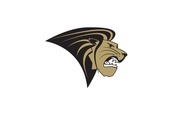
(View Complete Item Description)
This text, originally by K. Kuttler, has been redesigned by the Lyryx editorial team as a first course in linear algebra for science and engineering students who have an understanding of basic algebra.
All major topics of linear algebra are available in detail, as well as proofs of important theorems. In addition, connections to topics covered in advanced courses are introduced. The text is designed in a modular fashion to maximize flexibility and facilitate adaptation to a given course outline and student profile.
Each chapter begins with a list of student learning outcomes, and examples and diagrams are given throughout the text to reinforce ideas and provide guidance on how to approach various problems. Suggested exercises are included at the end of each section, with selected answers at the end of the text.
Lyryx develops and supports open texts, with editorial services to adapt the text for each particular course. In addition, Lyryx provides content-specific formative online assessment, a wide variety of supplements, and in-house support available 7 days/week for both students and instructors.
Material Type:
Homework/Assignment,
Lecture Notes,
Textbook
Authors:
Adapted by Lyryx Learning,
K. Kuttler




















